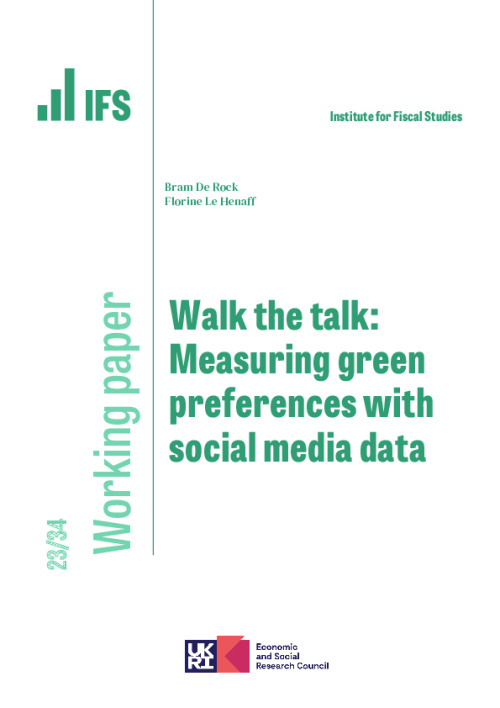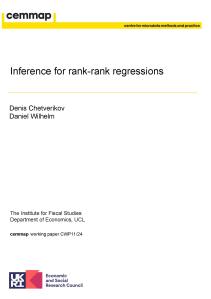Downloads

Download working paper here
PDF | 5.26 MB
We created a unique data set based on social media data by collecting and geo-localising all the tweets of 54 thousand Swedish citizens from January 2019 to June 2019. This allows us to construct an attractive individual-level measure of preferences for pro-environmental behavior. We demonstrate this by using our measure in two applications. We first document a subjective well-being gap between individuals with and without green preferences, using the average sentiment scores in tweets as a proxy of individuals’ subjective well-being. We then investigate the existence of a gender gap in green preferences and the propensity to act for the environment, relating our measure to publicly available data on electric and hybrid car registrations and political support for environmental policies in Sweden.
Authors

Research Associate Université libre de Bruxelles
Bram is a Research Associate of the IFS, a Professor of Economics at ULB and a Professor of Mathematics and Statistics at KU Leuven.
PhD Candidate European Center for Advanced Research in Economics and Statistics
Working Paper details
- DOI
- 10.1920/wp.ifs.2023.3423
- Publisher
- Institute for Fiscal Studies
Suggested citation
De Rock, B and Le Henaff, F. (2023). Walk the talk: Measuring green preferences with social media data. 23/34. London: Institute for Fiscal Studies. Available at: https://ifs.org.uk/publications/walk-talk-measuring-green-preferences-social-media-data (accessed: 30 June 2024).
More from IFS
Understand this issue

The changes to the UK's net zero pathway explained
10 November 2023

An honest conversation about net zero
11 October 2023

Sunak’s weak intervention may prompt a climate change revolution
25 September 2023
Policy analysis

ABC of SV: Limited Information Likelihood Inference in Stochastic Volatility Jump-Diffusion Models
We develop novel methods for estimation and filtering of continuous-time models with stochastic volatility and jumps using so-called Approximate Bayesian Compu- tation which build likelihoods based on limited information.
12 August 2014

A look under the hood of Labour’s investment plans
5 September 2023

CIOT/IFS debate: Carbon border adjustment – what approach should the UK take?
Academic research

Inference for rank-rank regressions
28 May 2024

Understanding Society: minimising selection biases in data collection using mobile apps
2 February 2024

The impact of labour demand shocks when occupational labour supplies are heterogeneous
28 June 2024